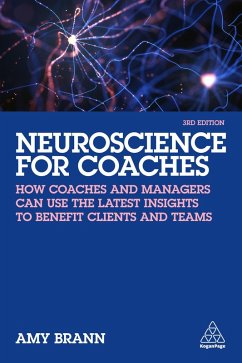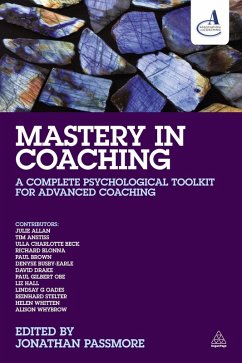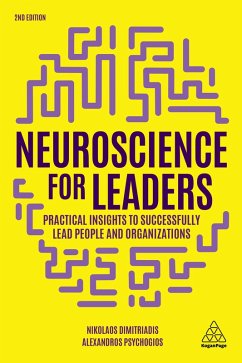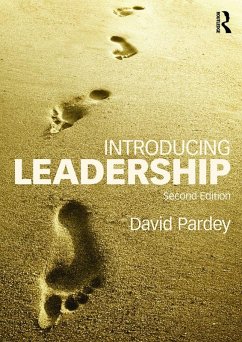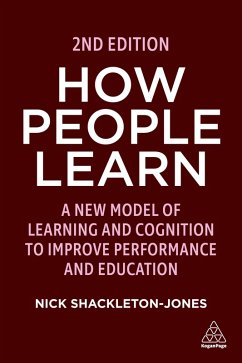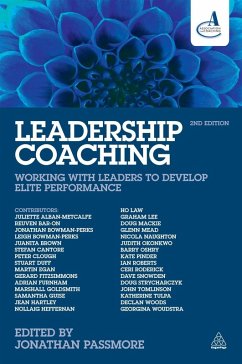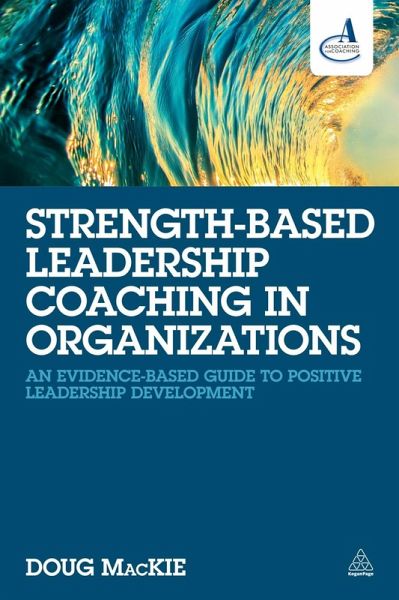
Strength-Based Leadership Coaching in Organizations (eBook, ePUB)
An Evidence-Based Guide to Positive Leadership Development
Versandkostenfrei!
Sofort per Download lieferbar
29,95 €
inkl. MwSt.
Weitere Ausgaben:

PAYBACK Punkte
15 °P sammeln!
Positive organizational psychology, with its focus on the identification and development of strengths, is a natural ally to executive development and leadership coaching. However, this approach is only just beginning to come to the attention of organizations and consequently, the research base for strength-based coaching is in its early stages of development. Strength-based Leadership Coaching in Organizations reviews strength-based approaches to positive leadership development and evaluates the evidence for their effectiveness, critically assesses their apparent distinctiveness and considers ...
Positive organizational psychology, with its focus on the identification and development of strengths, is a natural ally to executive development and leadership coaching. However, this approach is only just beginning to come to the attention of organizations and consequently, the research base for strength-based coaching is in its early stages of development. Strength-based Leadership Coaching in Organizations reviews strength-based approaches to positive leadership development and evaluates the evidence for their effectiveness, critically assesses their apparent distinctiveness and considers how strengths can be reliably assessed and developed in their organizational context.
Strength-based Leadership Coaching in Organizations reviews key areas of leader and team development and describes a model of strengths development in organizations. It discusses the application of strength-based leadership coaching from the managerial and external perspective within the context of career stage, seniority, role challenges and organizational need in order to facilitate meaningful change. Finally, it covers the limitations of the strength-based approach to leadership development together with the challenges of integrating positive leadership development. It shows exactly what a strengths focus is and that there is increasing evidence that this approach does get results. Where other books focus on one model of identifying strengths, this book offers a balanced and critical examination, showing how to apply a positive strength-based approach.
Strength-based Leadership Coaching in Organizations reviews key areas of leader and team development and describes a model of strengths development in organizations. It discusses the application of strength-based leadership coaching from the managerial and external perspective within the context of career stage, seniority, role challenges and organizational need in order to facilitate meaningful change. Finally, it covers the limitations of the strength-based approach to leadership development together with the challenges of integrating positive leadership development. It shows exactly what a strengths focus is and that there is increasing evidence that this approach does get results. Where other books focus on one model of identifying strengths, this book offers a balanced and critical examination, showing how to apply a positive strength-based approach.




